The home secretary is creating a harmful narrative that says refugees are worthless armies of people ‘exploiting our generosity’, writes Catherine Deveney.
The Jewish artist Alicia Melamed Adams once sold a painting of herself standing next to a beautiful flowering tree.
She called it Childhood Memories, though the purchaser had no idea that, for the artist (born Alicia Goldschlag), the memories evoked were dark and distressing. The tree was in Bronica Forest, a Nazi extermination site near Drohobycz, which is now in Ukraine.
On International Holocaust Remembrance Day, it is worth remembering that, in addition to the concentration camps, the Nazis had hundreds of local massacre sites, where an estimated two million Jews were simply rounded up and shot en masse.
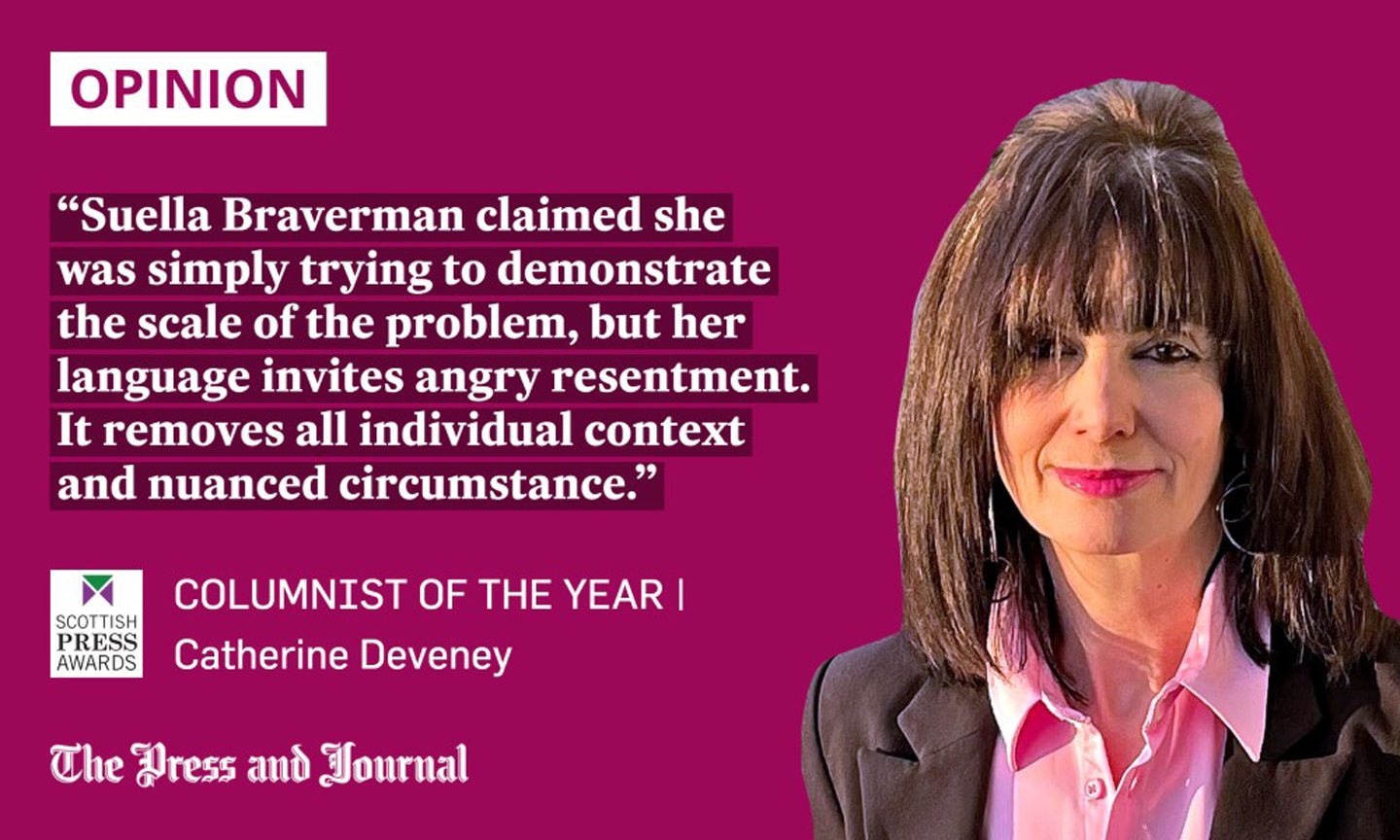
At 13, Alicia had worked as a cleaner for one of the Gestapo officers involved in the Bronica Forest massacres. Before the executions of around 2,000 people at a time, he would drink heavily.
One day, he told Alicia: “You are very nice. I will never shoot you with the others.” The reprieve, however, was limited. He showed her a picture of a beautiful flowering tree, telling her: “I will kill you separately and put you under that tree.”
The story is bizarre, the boundaries of a warped mind: I will kill you because you are Jewish, but not with the anonymous cruelty with which I kill Jewish strangers. I will take care of you afterwards, and bury the ugliness of my action in the beauty of your grave.
Alicia Melamed-Adams, 'Tears' pic.twitter.com/XfKEdCM6k1
— Christopher Coenen 🎶💃✊🏻🕺🎨 (@ChriXCoenen) May 18, 2022
Yet, what the story illustrates most is the danger of anonymity, and the importance of recognising individual humanity. The Gestapo officer’s thoughts and actions were grotesque, but he struggled to maintain his inhumanity when confronted by an individual he had come to know as a person and not simply as a Jew.
So, bravo to 83-year-old Holocaust survivor, Joan Salter, who made a 200-mile round trip to confront the home secretary, Suella Braverman, and emphasise the importance of individuality.
Making the connection between refugees past and present
The encounter, in a public meeting that Salter wasn’t even sure she would get access to, has now been viewed more than five million times online.
As a child, Salter fled from Belgium, across war-torn Europe, before settling in the UK in 1947. Her challenge, concerning the language Braverman used about refugees crossing the channel in small boats, was powerful.
Salter did not hesitate to make the connection between refugees past and present, or the ideologies that demonise and dismiss them. Taking hold of a microphone, and suppressing her obvious nerves, she bravely said her piece in a meeting that one observer described as a Tory “love-in”.
“When I hear you use words like ‘swarm’ and ‘invasion’,” she told Braverman, “I am reminded of the language used to dehumanise and justify the murder of my family and millions of others. Why do you feel the need to use that kind of language?”
Braverman makes refugees one homogenous group
The question was brilliantly direct. Braverman’s answer was not.
Her preamble focused on her credentials for understanding migrants. Her father came to the UK after being “kicked out of Kenya”, she said, while her mother had been recruited from Mauritius to serve in the NHS, where she spent 45 years as a nurse.
How ironic that Braverman should appeal to the audience on the basis of her family story, when she makes refugees one homogenous group with no life story or family background to consider
Interestingly, Braverman’s response did exactly what the Gestapo officer’s did: humanised, but only in a limited way. She didn’t want a human connection from the audience towards refugees – just to her.
How ironic that Braverman should appeal to the audience on the basis of her family story, when she makes refugees one homogenous group with no life story or family background to consider.
Yet, despite softening up the audience with her attempt to paint herself as more than a heartless politician, her real answer, when it came, was brutal. “So, I won’t,” she concluded, “apologise for the language I have used.”
Braverman claimed she was simply trying to demonstrate the scale of the problem, but her language invites angry resentment. It removes all individual context and nuanced circumstance, creating a narrative that says refugees are worthless armies of people “exploiting our generosity”. What generosity is that? A plane ticket to Rwanda?
Braverman has claimed those destined for Rwanda are mainly young, male, economic migrants. Yet, figures this week suggest that almost 50% are married, and 20% have children. Do we care enough about their family stories?
The danger of indifference
The famous Holocaust survivor and writer, Elie Wiesel, once gave a speech at the invitation of the Clintons called The Danger of Indifference. Indifference, Wiesel explained, was more dangerous than hatred. You could fight hatred. Indifference elicited mere silence. Being indifferent to suffering, he pointed out, made the human being inhuman.
Holocaust memories are important, not just to remember the truth, but, also, to debunk the lie that says there is a thick wall between us and the past. An unscalable wall, beyond which are people and events that exist in a more primitive world, no longer applicable to ours.
Joan Salter showed so succinctly just how close those people, those events, and those attitudes, really are. That, indeed, is a reason to care.
Catherine Deveney is an award-winning investigative journalist, novelist and television presenter, and Scottish Newspaper Columnist of the Year 2022
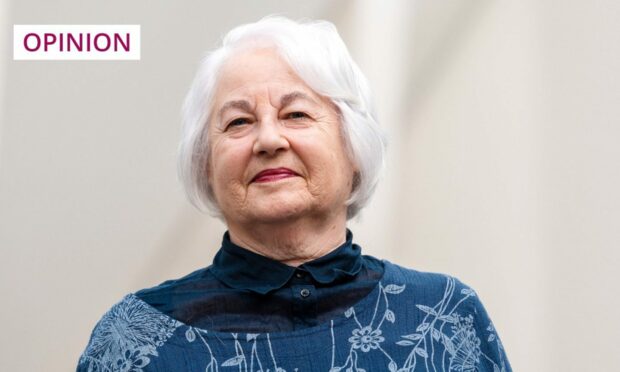

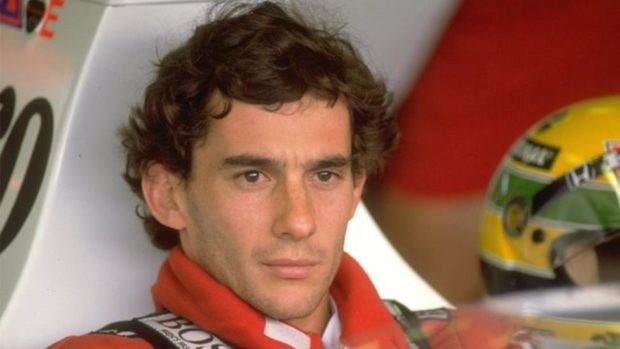
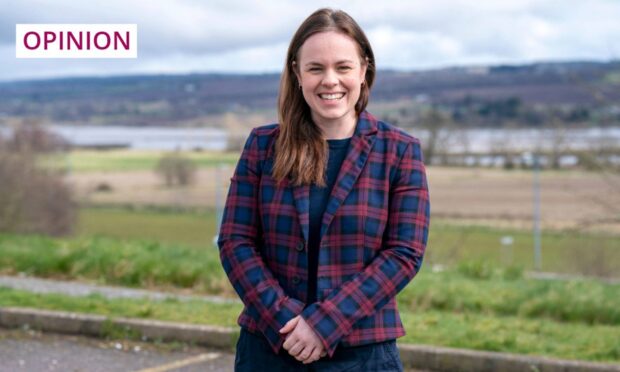
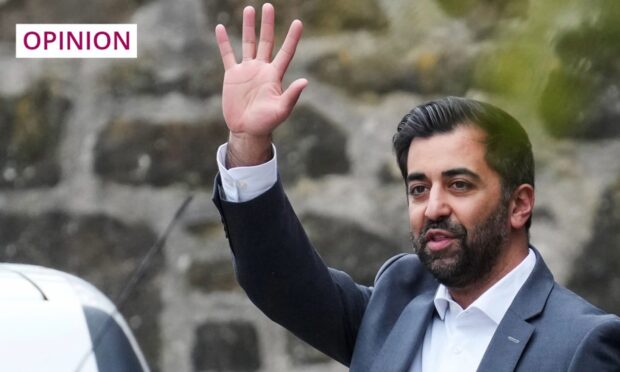
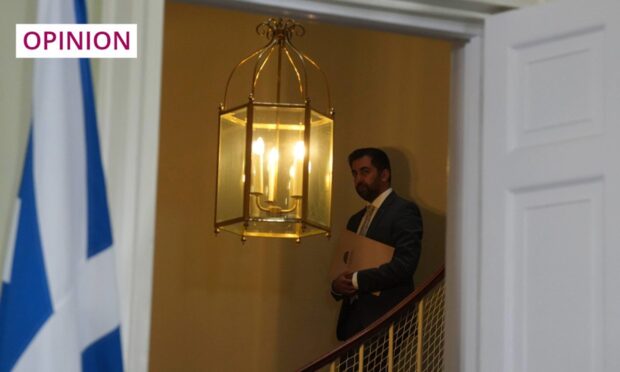






Conversation